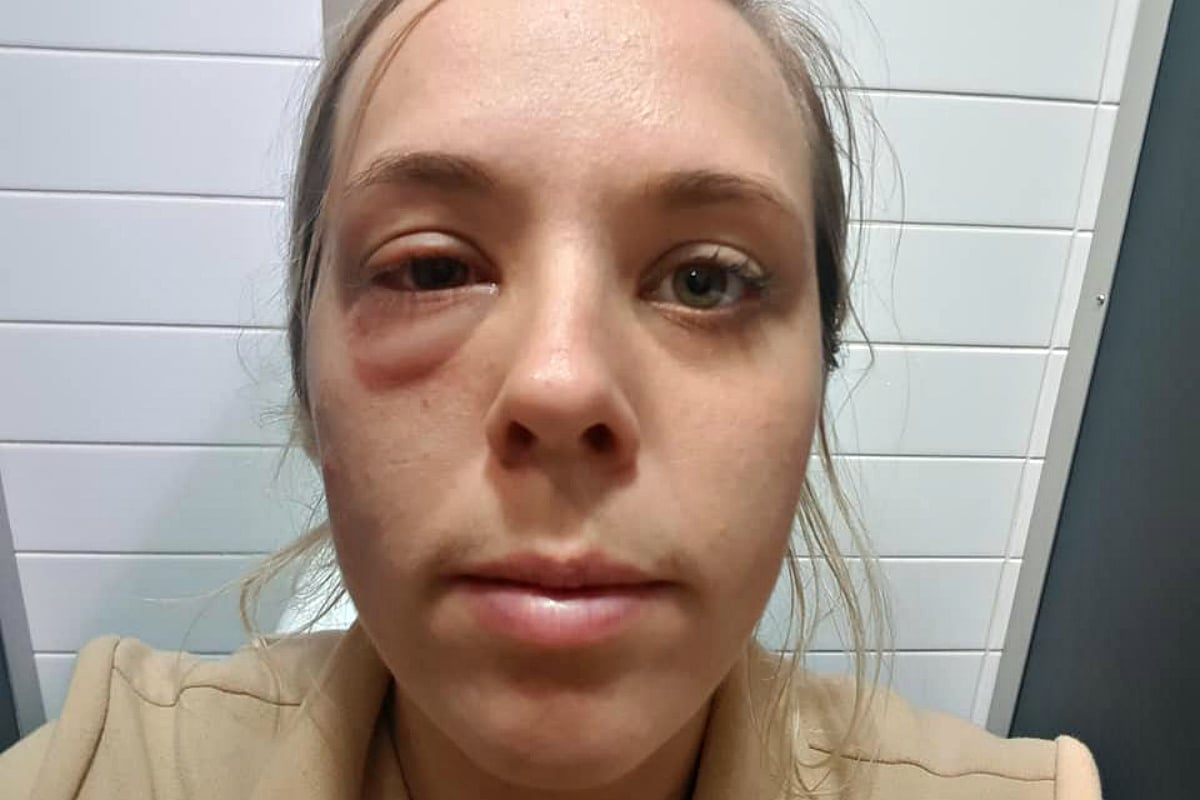
As someone who suffers from a severe nut allergy, Amber Allen is use to adapting her life around her health. She avoids certain cuisines, she carries medications and EPI Pens wherever she goes. She even wears gloves and sometimes face masks on planes to prevent inadvertently coming into contact with nuts.
But it’s not always enough.
On Monday night, the Tweed Heads woman was on board a flight between Sydney and the Gold Coast when her eyes began to itch. Within ten minutes the flesh around her eye had begun to swell. Speaking to Mamamia, the paediatric feeding specialist said that while she hadn’t ingested any nuts and was wearing gloves, she believes she may have been exposed to traces while on board – perhaps from her seat or tray table.
“In my day-to-day life this happens semi-regularly [roughly fortnightly],” she said. “But on this flight it was significantly worse than usual.”
Amber’s two children, aged five and six, were travelling with her, and Amber said despite her calm assurances, they were terrified it could be the beginning of a more severe reaction.
“They know how bad it can get, so they’re generally pretty anxious on a day to day basis anyway,” she said. “Then they see something like that happen…”
When she exhausted her own supply of medication, staff on the Jetstar flight appealed to other passengers for assistance and some were able to offer antihistamines. It was enough to halt her symptoms, but the swelling ultimately took 36 hours to subside.
Amber is now appealing for airlines to consider taking nut-containing products off the menu.

Top Comments
You don't have to fly. There is nothing I would love more than to get on a plane to somewhere warm but doc. says I must wait, and airlines say I'm currently high risk. I don't expect to hide my medical condition and potentialy end up diverting the flight to Canada or the US.
You cannot ban something because someone MIGHT have an allergic reaction. It is up to you to take responsibility for yourelf. Are there going to be calls for eggs, fish, strawberries etc.to be banned as well, in case someone is allergic? If it was a domestic flight she could have driven if she was that worried. I think that there are airlines that do not allow nuts on board. If someone sat themself down next to me and started dictating what I could or could not eat I would be very annoyed. As it is I don't like peanuts but I do eat tree nuts. She should have taken steps and asked the airline in advance to ask other passengers if they would mind sitting next to someone who can't eat peanuts. There is one of her and an entire plane full of passengers.